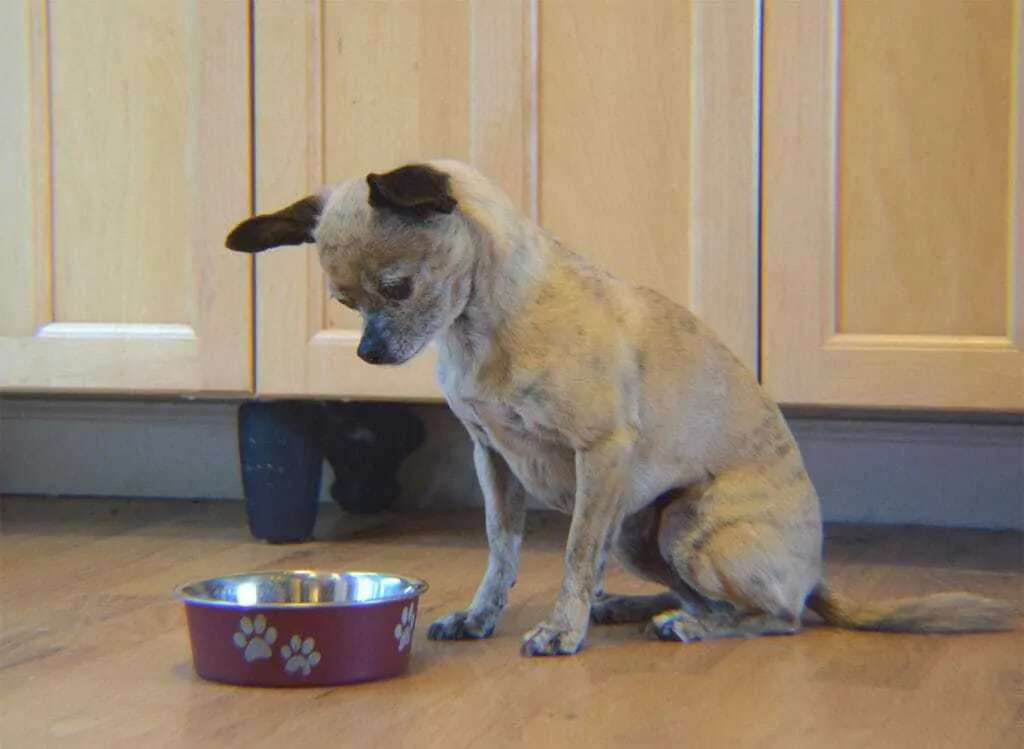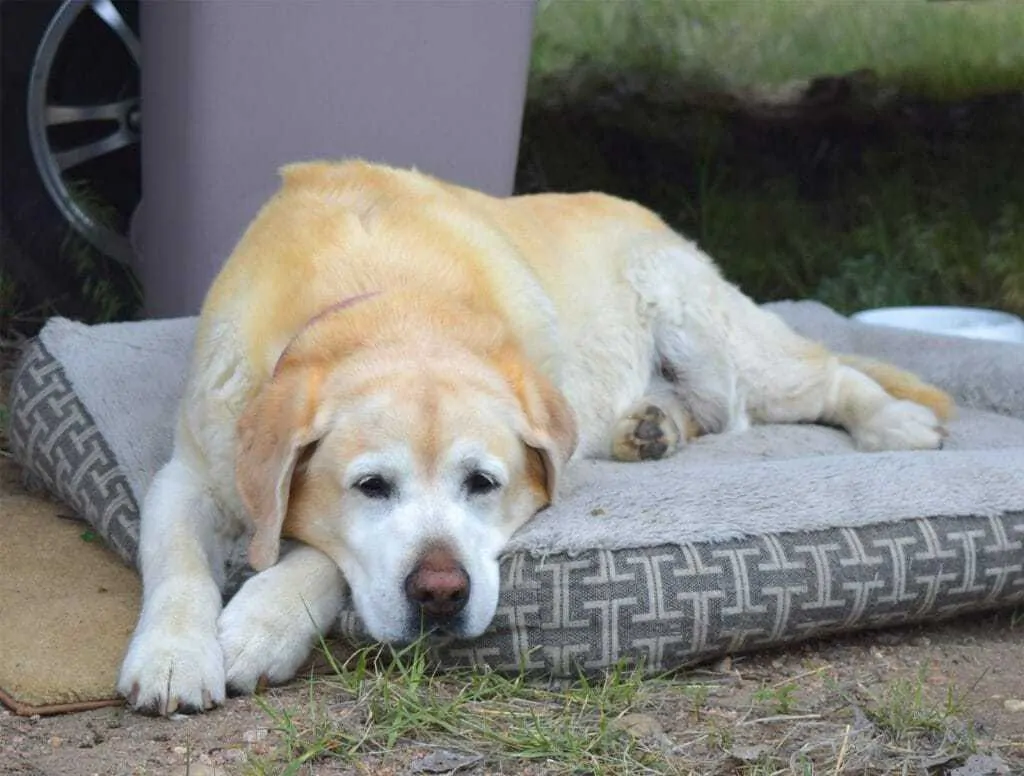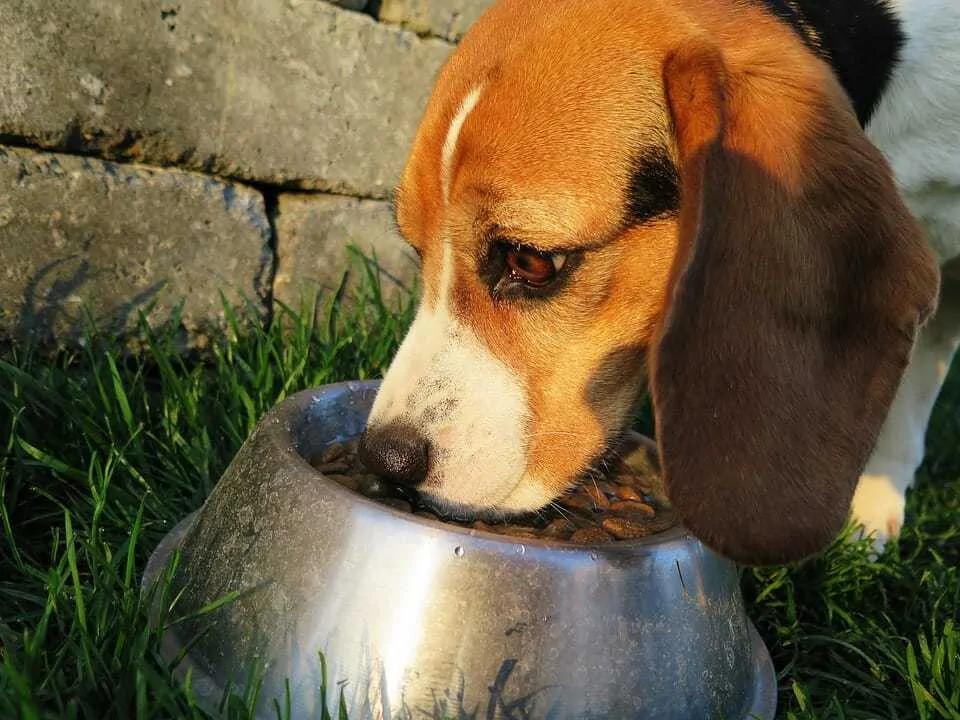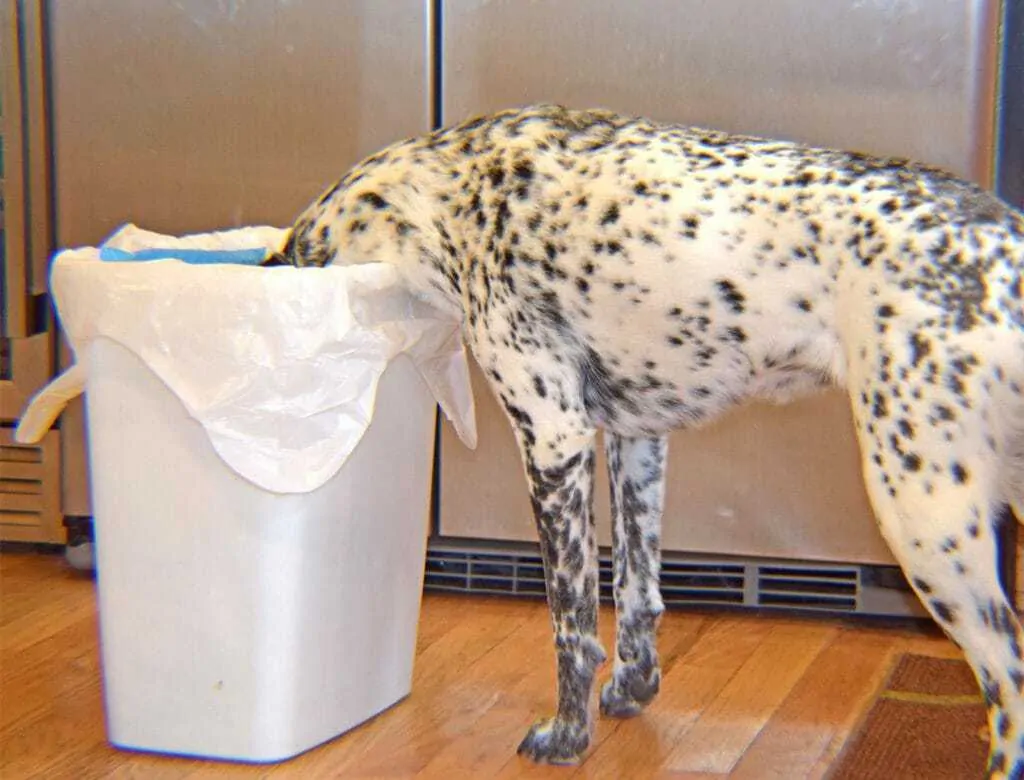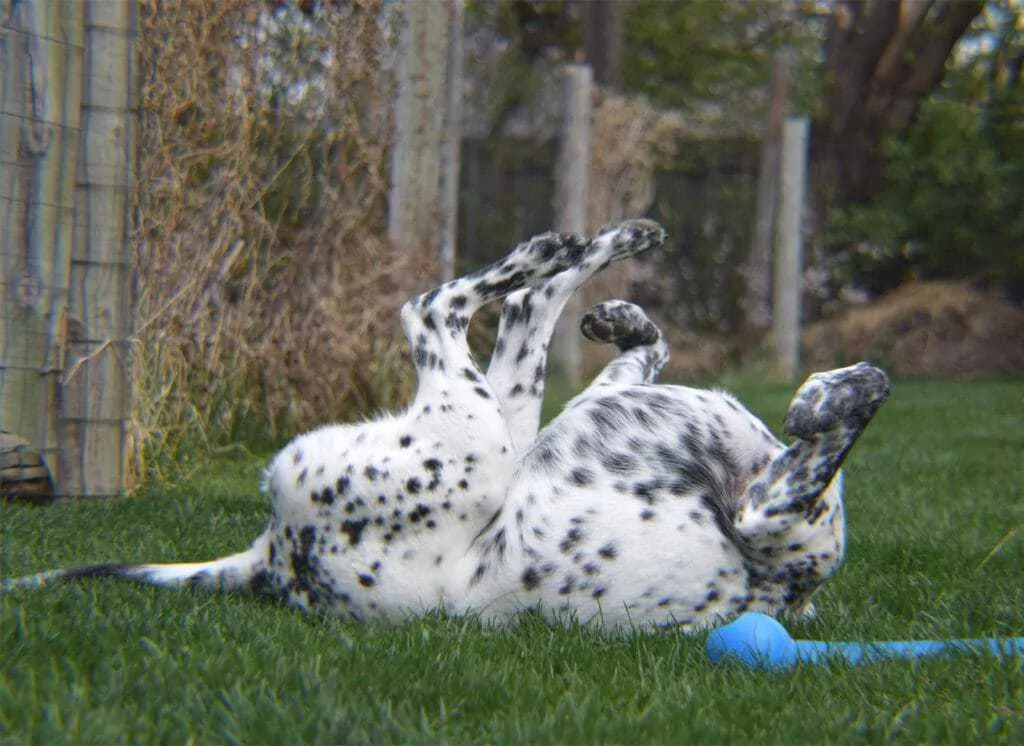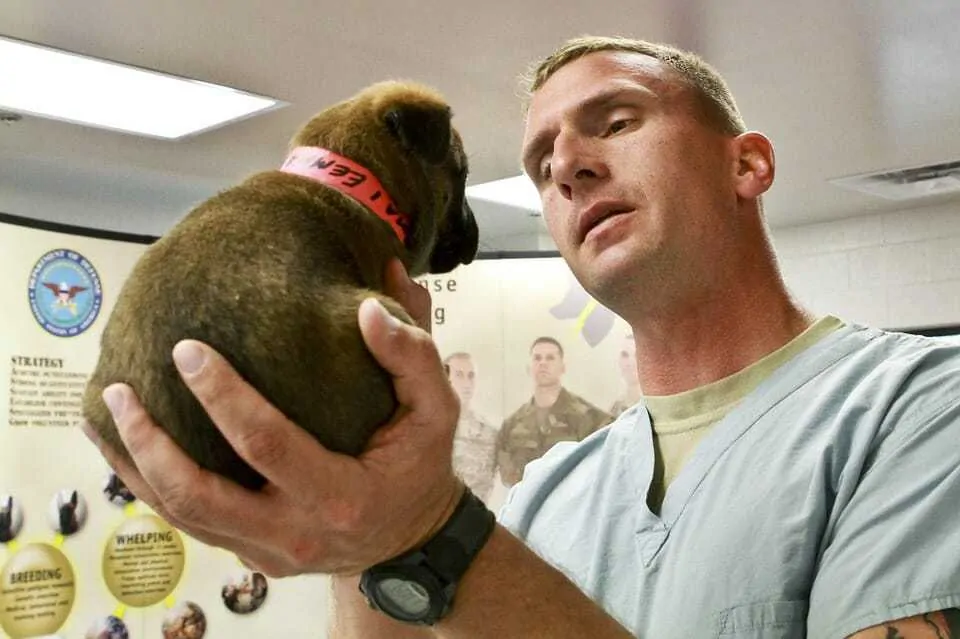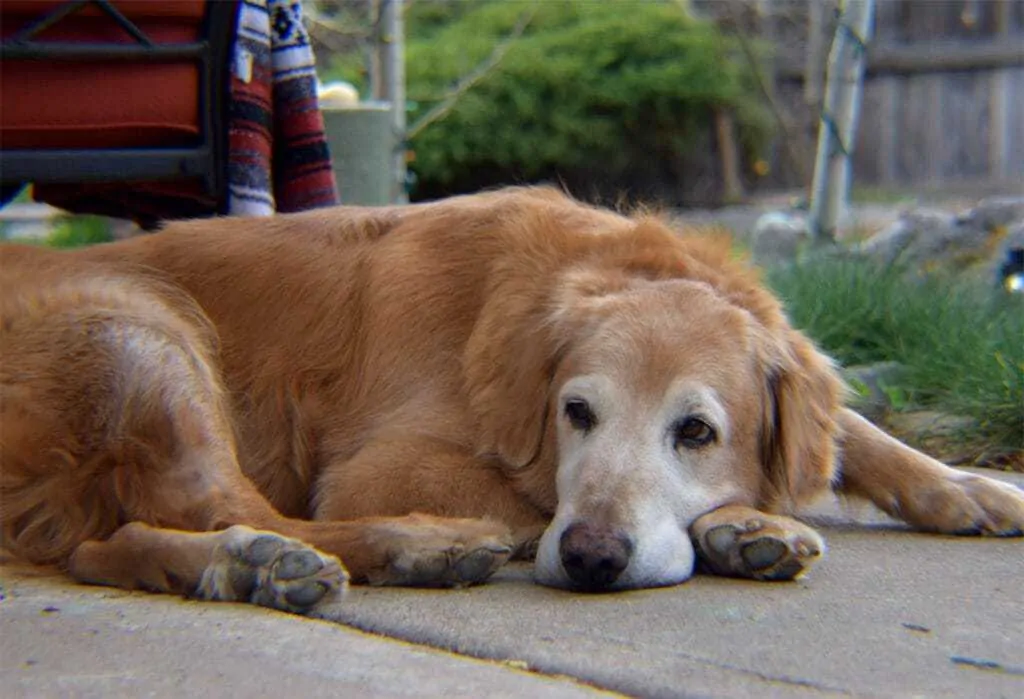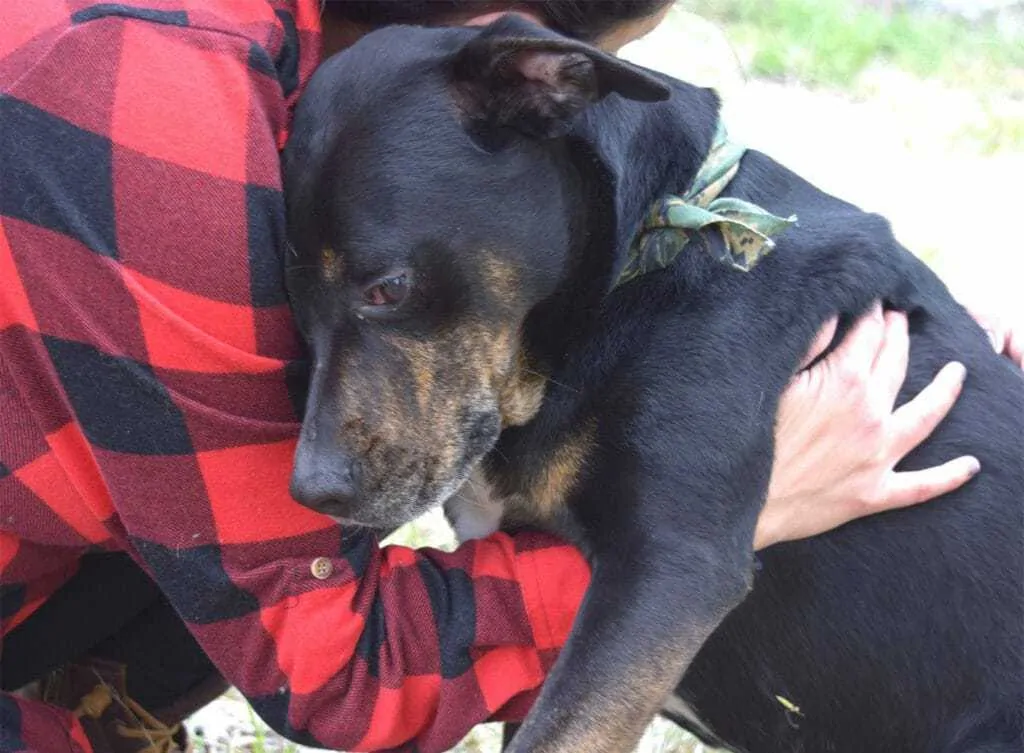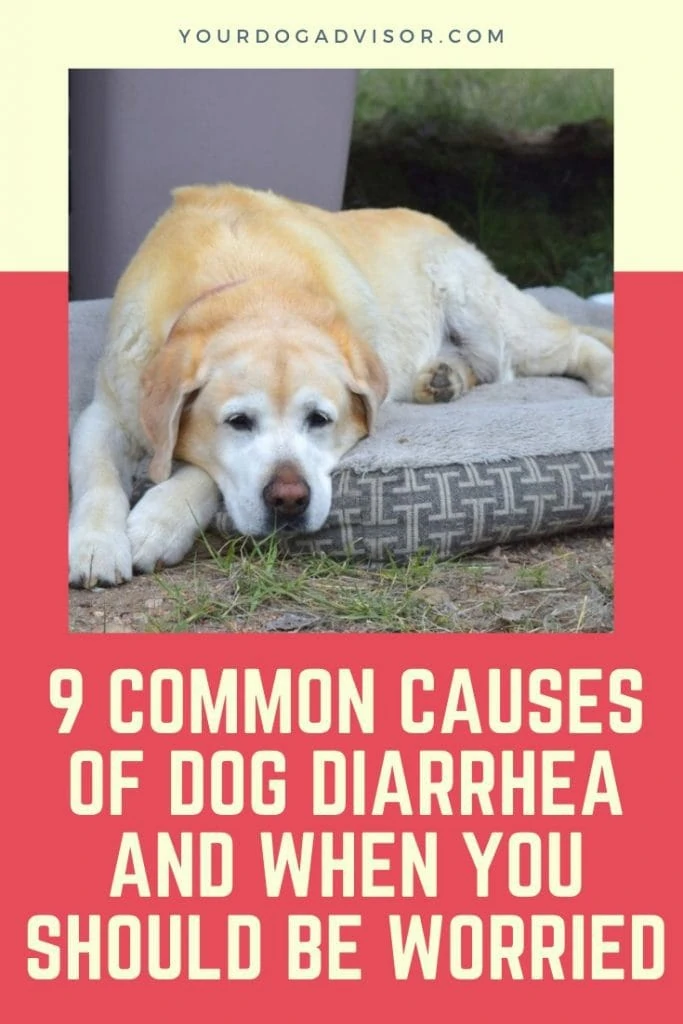It’s not something dog owners usually want to talk about. But it is something all of them will experience at one time or another. It’s the big D word: Diarrhea.
For some dogs, diarrhea is a frequent occurrence. For others, it’s a rare and unnerving experience. No matter where your dog lies on the spectrum, there is always a cause for an upset stomach. And in some cases, there is also a cause for concern.
So how do you identify the culprit that’s causing your pup’s stomach upset? And even more importantly, how do you know when it’s time to call the vet?
There are many causes of diarrhea in dogs. Knowing what those are and when it’s serious will help keep your dog safe and healthy.
We’ll look at the nine most common causes of diarrhea in dogs and then break down the circumstances that might indicate its time to get your pooch some professional help.
Contents
The Most Common Causes of Diarrhea in Dogs
Whether it’s whining to go out in the middle of the night or waking up to a soiled rug, diarrhea isn’t a fun experience for you or your dog. If you’re hoping to reduce the frequency of your dog’s stomach troubles or just wanting to avoid them altogether, identifying the cause of your dog’s upset stomach is the first step you need to take.
Diarrhea occurs when food material moves too fast through the digestive tract resulting in reduced water absorption. This can be the result of anything from toxins in the system to emotional upset.
To find out what’s causing your dog’s gut to work too fast for its own good, let’s look at the most common reasons diarrhea occurs in dogs.
Poor Quality Diet
It should be no surprise that diet can play a huge role in the consistency of your dog’s stools. Everything from fiber content, protein quality, and chemical additives in a food will affect how efficiently your dog can digest it.
Is your dog food helping your pup stay healthy? Or is it causing some digestive upset? Feeding quality, high-protein food will help more than just your dog’s tummy troubles.
Like their wolf ancestors, dogs are carnivores at heart. While their wild cousins may do some occasional foraging on berries and other fibrous materials, the canine system was made specifically to ingest animal proteins. Even after thousands of years of selective breeding, our dogs still show the tell-tale features of a carnivore.
We know the dog’s digestive system was made to digest fat and protein because it is very short. The human digestive system, by comparison, is long and made to digest plant fiber and starches. These foods take much longer to digest and require more surface area in order to adequately absorb the nutrients in them.
Dogs teeth and mouth also tell the story of a carnivore. Their teeth are sharp and made for ripping flesh rather than grinding fiber like a cow’s. Even their saliva was designed for a meat-based diet. Human saliva is packed with enzymes that begin the long digestive process before food even enters the stomach. Dog saliva, on the other hand, is made to kill bacteria like salmonella and e.coli, which are common in raw meat.
Low-quality dog foods tend to contain a lot of plant material. Because their system was not designed to properly digest and absorb nutrients from plants, these kinds of food often lead to loose stools. Combine this with added chemicals like food dyes, preservatives, and low-quality meats, and you have the perfect recipe for digestive upset.
Some dogs have special diet concerns that require additional attention to avoid diarrhea. Older dogs often struggle to digest high-fat diets and can benefit from high amounts of insoluble fiber in their food. Puppies, on the other hand, need diets very high in protein and fat in order to grow properly.
Many older dogs require specialized diets to keep their digestive systems running smoothly.
If you think a low-quality diet might be the cause of your dog’s loose stools, it’s time to switch to a better dog food. Look for one with quality, named animal ingredients, limited plant-sourced ingredients, and no added chemicals or dyes. But make sure to read about the next common cause of dog diarrhea before making the switch.
Dog food ingredient lists can be tricky to read, but knowing how to identify quality diets is the first step to finding a food to help your dog overcome chronic diarrhea.
Abrupt Changes in Diet
No matter how quality the food your feeding your dog is, changing it up suddenly can cause serious gastric distress for your pooch.
Abruptly changing from one type or brand of food to another is likely to cause some stomach problems with most dogs and serious diarrhea in those that are more sensitive. If you need to switch your dog’s food, you need to do so slowly.
Even the most enthusiastic eaters can get an upset stomach if their diet is changed up too abruptly. Always change your dog’s food gradually to give their stomach time to adjust.
The recommended process for gradually switching your dog to a new diet is to slowly increase the ratio of new to old food over the course of about four days.
Day 1: 25% new food mixed with 75% original food
Day 2: 50% new food mixed with 50% original food
Day 3: 74% new food mixed with 25% original food
Day 4: 100% new food
If your dog is especially sensitive, even this schedule may be too abrupt. If that’s the case, start with about 10% new food and raise the ratio more gradually over the course of a couple of weeks.
Many dog owners mistakenly blame loose stool on the new food itself, rather than the change in diet. This leads many pet parents to throw out a higher-quality food and return to the original, lower-quality food. The truth is, switching abruptly to any food will cause issues, but switching from one very low in protein to one very high in protein will cause even more issues.
It takes time for your dog’s system to get used to new foods, especially if they are richer in nutrients. If you read our first point and are planning on switching your dog to better food, make sure you do so slowly. If at any point your dog’s diarrhea gets worse, lower the ratio of new food and switch to a slower introduction schedule.
If you’ve already made the mistake of transitioning too fast to a new diet, your dog’s upset stomach is likely to go away after they’ve had a few days to get used to the new food.
Ingestion of Non-Food Items
Sometimes, diarrhea is caused by ingesting items that aren’t food at all. If your dog is prone to scavenging through the trash or eating random objects, you already know the digestive torment this habit can cause.
Dogs love to eat leftover human food from the trash, but doing so often leads to tummy troubles, and in some cases can even be dangerous.
Eating items a dog shouldn’t can lead to loose stool through a number of ways.
Items that are toxic to your dog’s system like rat bait, xylitol, cleaners, and certain human foods often lead to upset stomach as their digestive tract tries to expel the poison. In cases such as these, upset stomach is the least of your worries as life-threatening symptoms are sure to follow.
In other cases, a dog may eat something that is not digestible at all, such as a toy or a piece of clothing. Your dog may develop mucousy stools as the item passes through the gut, especially if the item is sharp. If the object gets stuck, that loose stool can quickly turn to constipation and only intervention by a vet will help.
Less dangerous, but often more explosive diarrhea can occur when a dog eats food waste, decaying animals, or other trash. When this happens, your dog’s system will work to rid itself of the unhealthy food by expelling it by all means necessary. In this case, your dog may vomit as well as have very watery stools.
Food Allergies and Sensitivities
In some instances, diarrhea can occur even when your dog is on a proper diet of quality food. This can happen if your dog has food allergies or sensitivities to certain ingredients.
What’s the difference between a food allergy and a food sensitivity?
A food allergy is similar to seasonal allergies and bee sting reactions in that the immune system is involved. When your dog experiences a true food allergy, the food is digested normally, but an immune response occurs in the gut or the bloodstream. Proteins most commonly trigger this immune response as the body mistakes the food particle for an invading virus or bacteria.
Food allergies most often result in reactions like hives or itchy, irritated skin. In severe cases, they can trigger anaphylaxis. In some dogs, food allergies can lead to loose stool and vomiting.
Much more likely to cause loose stool is a food sensitivity. Unlike allergies that involve the immune system, food sensitivities are usually restricted to reactions within the gut. Food sensitivities are often a sign of deeper issues, such as the inability to create certain enzymes, larger digestive disease, or chronic stress.
Most commonly, food allergies cause symptoms like excessive itchiness and inflamed skin, but in some cases, they can also cause diarrhea.
If your dog suffers from loose stool caused by allergies or sensitivities, you will need to find a diet that does not contain the offending ingredient. It may take time to decipher what specifically is causing the reaction. The most common suspects in dogs are corn, wheat, soy, and other grains. Some dogs are even sensitive to animal proteins, with beef, chicken, and lamb being the most common.
Highly processed food seems to cause more issues than foods in their natural state. If your dog seems sensitive to a wide array of ingredients, you may consider a raw diet.
Stress
An emotional component causing diarrhea is often overlooked, but surprisingly common. As someone who has worked for years in the boarding kennel industry, I can tell you just how much stress can play into what comes out your dog’s south end.
When the body is flooded with stress hormones the digestive tract is triggered to dump its contents in the quickest way possible. This is because your dog’s ancestors would often have to react to stress by fighting or running away. If you’re a wolf who has suddenly come upon an angry momma bear, you don’t want your lunch slowing you down.
Our dogs may not face the same stressful situations as their distant relatives, but their bodies still react in much the same way.
Many dogs feel stressed when their owners leave. If your dog often develops diarrhea when they are boarded or left for long periods, stress is likely the cause.
Being boarded, visiting the vet, and being left home alone can all cause stress. If your dog experiences loose stool while you’re away at work, they may be suffering from separation anxiety. If their diarrhea coincides with visits from a certain friend, they may be trying to tell you how they really feel about that person.
Whatever the cause, stress-induced upset stomach is best treated by avoiding that situation. If avoidance is impossible, you may consider a calming supplement or medication to reduce their stress. If that’s not enough, you may have to temporarily change your dog’s diet (such as during a boarding stay) to something that will actively counteract an upset stomach such as rice and boiled chicken. There are even bland diets available for diarrhea prone dogs.
Parasites
Another internal cause of diarrhea is parasite infections. These nasty little creatures can infect your dog’s gut causing a host of unpleasant symptoms.
The most common parasites in dogs are worms. Tapeworms, hookworms, roundworms, and whipworms all take up residence in your dog’s gut. In addition to loose stool, your dog may show symptoms such as vomiting, scooting, and licking their rear-end.
You can often see worms in your dog’s stool or near their anus, especially if the infection is severe. Weight loss and dull coat are another sign that your dog’s upset stomach is related to a parasite infection.
Ticks like this one can carry diseases that cause diarrhea. Using flea and tick medication or avoiding walks through long grass can help reduce your dog’s risk.
Dogs can pick up parasites from a number of places. Eating dead animals or trash is a common way dogs get worms. Fleas and ticks can also transfer parasites. Using medications to repel external parasites like these and limiting your dog’s access to vermin and trash is a good step in preventing parasite-induced diarrhea.
If you think your dog already has a parasite, you’ll need to talk to your vet. Luckily, most parasite infections are easily treatable with medication. Once the infection starts to clear up, you should see the loose stools stop as well. But be aware that reinfection, especially with worms, is easy. Try to keep your dog from licking their bum and eating their own poop during treatment to reduce these odds.
Viral and Bacterial Infections
Similar to parasites, bacterial and viral infections can attack your dog’s gut and cause an upset stomach. Depending on the type of infection, your dog may be able to get over it on their own or they may need treatment by a vet.
Coronavirus is a very common viral infection in dogs that causes liquid, yellow-orange diarrhea as well as vomiting, lethargy, and, occasionally, fever. Most adult dogs won’t show any symptoms at all and those that do usually get over them in a few days. Puppies, especially those already infected with other pathogens are most at risk for complications from this virus.
Rotavirus is another common virus that can cause loose stools in dogs. As with other common gut viruses, healthy adult dogs are unlikely to be affected. Young and stressed dogs will experience watery diarrhea and possible dehydration.
Puppies may be more severely affected by bacteria and viruses due to their immature immune systems.
Bacterial infections such as Campylobacter and Helicobacter are also common in dogs and can cause diarrhea in those with stressed immune systems. Most dogs also carry the salmonella bacteria in their gut but only those who are stressed or ill will show symptoms of infection.
Many of these more common bacterial and viral infections don’t cause symptoms on their own, but when paired with other infections such as parvovirus or distemper, they can be deadly. Both parvo and distemper cause diarrhea and can be life-threatening on their own. Puppies are most at risk for these illnesses, especially if they have not yet been vaccinated against them.
If you suspect a viral or bacterial infection is the cause of your dog’s upset stomach and they are also exhibiting other symptoms, it is best to get them to a vet right away.
Underlying Illness or Disease
Occasionally, diarrhea is a symptom of a much larger problem that needs to be addressed.
If your dog suffers from chronic diarrhea that diet changes have not affected, there may be an underlying gut issue such as inflammatory bowel disease, colitis, pancreatitis, or Addison’s disease. Special diets and sometimes medication may be needed to reduce the frequency of loose stools.
Dogs who show symptoms in addition to loose stools may be suffering from a more serious illness like cancer or digestive disorders.
Loose stool can also be a sign of cancer, especially in the kidneys, liver, and bowel. If diarrhea comes on suddenly and isn’t affected by changes in diet or over-the-counter medications, your vet may want to run blood work.
If your dog’s upset stomach is accompanied by dark blood in the stool, weight loss, or lethargy, it is best to bring them to the vet to be checked for underlying diseases.
Side Effect of Medication
Sometimes, the answer to your dog’s upset stomach mystery lies in the medication they are taking. Just like with human meds, many medications for dogs have diarrhea listed as a side effect.
Antibiotics often cause diarrhea as much of your dog’s healthy gut bacteria is killed off along with the infection. Giving your dog probiotics once they have finished their antibiotic course can help balance them back out.
Many medications can cause digestive upset, including diarrhea. Always discuss possible side effects with your vet.
Antidepressants and other behavioral meds can also cause an upset stomach. As can anti-inflammatories and painkillers. If your dog is on one of these meds long-term or needs them to recover from surgery or injury, talk to your vet about additional meds to help with diarrhea. They may even be able to prescribe a different medication that is less likely to cause digestive upset.
Treatments such as chemotherapy and radiation can cause an upset stomach as well. In cases like this, switching to a bland or prescription diet may be the best option.
When is Diarrhea Serious?
Even if you know what caused your dog’s loose stool, there are still situations in which getting them to a vet is a must.
Let’s look at some of the red flags that should tell you not to wait this bout of diarrhea out.
Additional Symptoms
Anytime your dog shows other symptoms on top of diarrhea, it is a good idea to get your vet involved.
You know when your dog’s not feeling well. If you notice any behavior changes or signs of pain in addition to loose stool, it’s a good idea to get them to the vet for a checkup.
While other signs of digestive upset, such as vomiting or lack of appetite, aren’t so concerning, more varied symptoms are. Dog’s showing any of the following symptoms are likely to be experiencing something more severe than a simple tummy ache:
- Lethargy, especially if it does not ease within a couple of days
- Dark, bloody stools
- Abdominal pain
- Changes in mood or behavior
- Fever
- Weakness
- Refusal to eat
- Dehydration
- Weight loss
Dog’s showing additional symptoms are more likely to suffer long term damage and even death without medical care. To be safe, get your dog to a vet right away.
Duration
If your dog’s only symptom is diarrhea medical treatment may still be necessary if it lasts more than a few days.
Dogs suffering from a simple virus or the consequences of table surfing should be back to normal in a relatively short time frame. If your dog continues to suffer from loose stool or diarrhea is reoccurring, it’s best to talk to your vet.
Most likely they will run some tests to see if there is something else going on. Additionally, dogs that have had diarrhea for a while are likely to get dehydrated. An IV at the vet’s office will help prevent any additional complications from dehydration.
Age and Overall Health of the Dog
There are some cases where waiting even a day to see if diarrhea clears up can be risky.
Very young puppies can become dehydrated fast. And they are at higher risk of infections that can turn deadly if not treated right away. Pups under 12 weeks of age should be seen by a vet as soon as possible if diarrhea occurs.
Young puppies are at high risk of deadly diseases like parvovirus. When diarrhea occurs in a puppy it should be treated as something very serious.
Very old dogs are also more likely to suffer from serious illnesses and diseases where diarrhea is just a symptom. Even if there isn’t something else going on, they are more prone to dehydration and muscle loss during stomach upset.
Dogs with existing health conditions may suffer extra consequences from diarrhea. Diabetic dogs often see blood sugar swings during digestive upset. Immunocompromised dogs can develop complications from loose stool causing viruses and bacteria. Your vet can help you navigate treatment for diarrhea while assuring the existing condition is being looked out for.
Effectiveness of Home Remedies
There are a number of home remedies that work well for simple cases of diarrhea. Many owners will withhold food for 12 to 24 hours to let their dog’s stomach settle down. This can be especially helpful if you know your dog ate trash or something similar.
In addition to fasting, or sometimes in place of, many owners replace their dog’s normal food with white rice and boiled chicken. This easy-to-digest meal soothes the stomach and normalizes digestion. Adding canned plain pumpkin to this mix or to your dog’s normal food can also be effective.
If these remedies normally work for your dog but aren’t doing the trick this time, that’s a good sign your pup needs to see a vet. Underlying health conditions won’t respond to stomach-soothing remedies. It’s best to have a full workup done to assure nothing major is causing your dog’s sickness.
Always Air on the Side of Caution
Diarrhea in dogs has a long list of possible causes and is one of the most frequent afflictions an owner will have to deal with. But that doesn’t mean all cases of stomach upset should be treated without concern.
In the end, you are your dog’s advocate and it is your job to make sure your pup is safe and healthy. If you’re not sure whether your dog is suffering from something serious or just getting over a belly ache, it’s always best to be cautious and get your pup checked out by a vet.

Sara Seitz has spent most of her life in the pet industry and has a bachelors in animal behavior from Colorado State University. Sara started working with dogs and cats as a high schooler at a rural boarding kennel. There she learned a lot about the bad and the ugly of the pet service industry. But not even the toughest day at that job would dissuade Sara from following her dream of working with animals.
In college, Sara got a job at a dog daycare and boarding facility in Fort Collins, Colorado. Her new career provided even more opportunities for learning about dog behavior than her classes did. As general manager of the daycare, Sara helped the company launch a new in-home pet sitting branch and trained to become a certified dog trainer. Between shifts taking care of peoples pets in-home and supervising dogs during playtime at the daycare, Sara organized and taught obedience classes.
Sara has always been passionate about bettering the lives of our canine companions. She soon found that advocating for and educating owners in the power of positive reinforcement training was one of the best ways to help dogs and their owners live happier lives.

